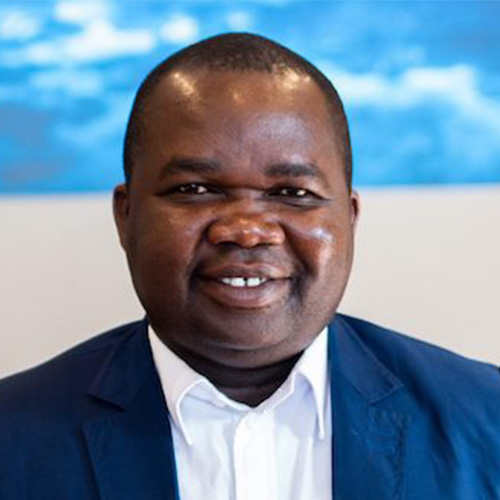
Kouassi Richard M’Bra
Country (Nationality)
Cote D'ivoire
Grantee Title
Project: Impact of climate change on the transmission risk of malaria in southern Côte d'Ivoire
Grantee Description
Kouassi Richard M’Bra, is a Lecturer-Researcher in “Institut de Gestion Agropastoral” of University Peleforo Gon Coulibaly of Korhogo, Côte d’Ivoire. He is also an Associate Researcher in the Department of Environment and Health of Centre Suisse de Recherches Scientifiques in Côte d’Ivoire (CSRS).
He completed his PhD at the University Félix Houphouët-Boigny, Abidjan, Côte d’Ivoire in 2017 in collaboration with CSRS and the Swiss Tropical and Public Health Institute (Swiss TPH) in Basel, Switzerland.His research work was titled “Water, sanitation and climate change: integrated analysis of risk factors for malaria and schistosomiasis in Korhogo (Northern Côte d’Ivoire) and Kaedi (Southern Mauritania)” which was funded by the Special Programme for Research and Training in Tropical Diseases (TDR) of World Health Organization (WHO).
M’Bra’s main interests are climate change; water, sanitation and Hygiene (WASH); vector borne diseases and Geographical Information System (GIS).
M’Bra has presented is research findings at several international conferences and workshops. He was awarded the prize for the student best poster during the 4th International One Health Congress & 6th Biennial Congress of the International Association for Ecology and Health, in Melbourne, Australia in December 2016 (https://twitter.com/oheh16students/media).
He is co-authors of 6 peer-reviewed articles in reputable academic journals.
Project: Impact of climate change on the transmission risk of malaria in southern Côte d'Ivoire
The project is analyzing climate and environmental parameters associated with malaria transmission in Tiassalé, a city in Southern Côte d'Ivoire. This is a continuation of M’Bra’s PhD work at understanding the role of rainfall, temperature, NDVI and Land use in the distribution of malaria infection. M’Bra and colleagues have demonstrated that in northern Côte d’Ivoire, an incremental increase of 10 mm of monthly precipitation was, on average, associated with a 1% and a 1.2% increase in the number of clinical malaria episodes one and two months later respectively. This project will provide information about the relationship between climate variables and malaria transmission in southern part which represents the more endemic of malaria of the country. Coupled with the results obtained in northern Côte d’Ivoire, the results of this project will be used to develop early warning systems to forecast periods of high malaria infection risk in Côte d’Ivoire. These actions will help to reduce the burden of malaria in the country.
